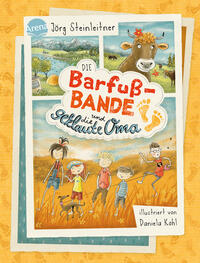What is sex? Or: why don't we just let it be?
Above all else, and despite all the enlightenment of the age, sex in the 21st century seems to be a problem. Abuse, MeToo, human trafficking, circumcision, role-playing, body cult... But if sex is a mere abyss for modern humans, then why not just let it be? We are the first generation that could actually do it without endangering the survival of the species. And voices are getting louder that once again call for abstinence in a supposedly over-sexualised society. Artificial insemination and artificially intelligent technology for the safe removal of instincts should finally pacify what humans cannot control: instinctive nature. Sex is not the epitome of our animal nature. Every attempt to control the animal in us, either by taming it or by freeing it from tamers in a sexual revolution, inevitably misses the point.
Bettina Stangneth asks the quite simple question: what is sex? If every culture of prohibition has failed so far, clearer ideas are obviously needed. Even if we prefer to ignore it, attempts to establish a culture through desire instead of the cultivation of desire have been around for a long time. After all, if you don't want to learn to talk positively about sex, you can't talk meaningfully about coercion and violence.































